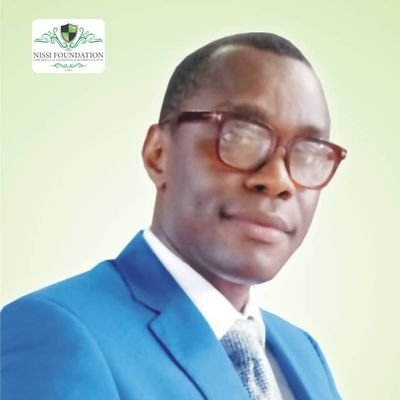For over three decades, the practice of the state government has been fraught with a lot of incompetencies that have given rise to diverse issues that have placed the government on a bad light, as such, it will be foolhardy for us to keep doing the same thing again and again, and expect a great result when in contrast there was a system we once practiced that brought about relatively responsible governance without the present leadership failures that have plunged the country backward than we ever imagined”.
With the case for the introduction of regional government established against the background of numerous calls for the country to return to such a system of government, delving into the other gains in alignment with the current realities of the country is imperative for a deep understanding of why the country should revert to a regional-based government.
For over three decades, the practice of the state government has been fraught with a lot of incompetencies that have given rise to diverse issues that have placed the government on a bad light, as such, it will be foolhardy for us to keep doing the same thing again and again, and expect a great result when in contrast there was a system we once practiced that brought about relatively responsible governance without the present leadership failures that have plunged the country backward than we ever imagined.
With President Tinubu having received the bill proposing a return to regional government, there are mounting expectations of what could come out of that as fingers are crossed as to the verdict of the President who himself is a proponent of a regional government and chances are good that he gives the nod to such timely return.
While the new bill proposes an eight-region structure and the details are yet unclear, it can be deduced, picking up from where we left off in the first part of this series, the necessary benefits it holds for the country.
Economic Development and Resource Management will be better managed on account of regions’ better understanding of their unique needs and potentials. For instance, the Niger Delta region could focus on sustainable oil and gas development, while the Northern regions might prioritize agriculture and livestock development.
With regional government, there is also the high chance of deeper democratic participation. Citizens are more likely to engage in governance when they feel their voices can influence decisions that directly affect their daily lives. This grassroots involvement can lead to more innovative and inclusive governance practices.
In the current system, we find a lot of detachment from our culture and national values, but the prospects of regional government promise the capacity to preserve and promote local cultures, traditions, and languages, thus enriching national heritage.
Another aspect that incentivizes the idea of regional government is in the creation of healthy competition among regions. With decentralization, innovation will be spurred in a healthy competitive space with each region striving to outdo the others, and in the process develop unique solutions to common problems, consequently driving overall national progress.
The call for regional government in Nigeria is not just a nostalgic yearning for the past but a pragmatic approach to addressing contemporary challenges. By decentralizing power, Nigeria can harness its diversity, promote equitable development, and foster a more responsive and accountable governance system. The transition to regional government must be carefully managed, with a clear vision, inclusive dialogue, and strategic implementation to ensure that it leads to a more united, prosperous, and stable Nigeria. The potential benefits far outweigh the challenges, offering a pathway to a future where every Nigerian can thrive in a system that values their unique contributions and addresses their specific needs.
2 Chronicles 11:2: In every city [he put] shields and spears, and made them exceeding strong. Judah and Benjamin belonged to him.
Meanwhile, I am delighted to inform you that come October, 1, 2024, we at NISSI Safety Management Institute: An Institute famous for Peace Leadership will be celebrating our 20th Anniversary.
To this end is our campaign to spread the education of peace leadership to both the old as young, women and children in various places from corporate organisations, to political organizations, worship centers, educational institutions, markets and communities.
It is in our belief that the more educated the people are in respect to peace leadership, the more peaceful our country will become.
So this is a call-to-action, to hop on our Peace campaign train, to arm yourself, your friends, your colleagues, your employees, your congregation with contemporary peace leadership knowledge that makes for a happier and more fulfilled life, personally and collectively.
Kindly call or send a message on Whatsapp to +2347065828892, to be a beneficiary of this.
Prof. Ofonime Emmanuel Bassey is a Leadership, Conflict, Peace and Security Management Coach with decades of experience in the practice and promotion of Law Enforcement, Peace and Security through the Nigeria Police and the United Nations.
He has served and interacted at the top level management of the Nigeria Police as well as internationally as a United Nation’s Monitor/Mentor in Kosovo, Europe.
Ofonime is a certified United Nation’s Trainer, and currently a Professor of Leadership, Peace and Conflict Resolution with ICOF University, USA/Zambia and a Professor of Peace Education with Charismatic International University, Cameroon.
With his marks well-established in Peace Leadership both in Nigeria and Africa, he is the President, NISSI Safety Management Institute: An Institute famous for Peace Leadership.
Presently, he is spearheading a campaign tagged “The Next Peace Leaders”, a campaign that is billed to run from 2022-2030 with a target of training 37,000 young peace leaders.
For leadership, conflict, peace and security consultations and trainings, reach him via:
Facebook: Dr. O.E Bassey
LinkedIn: Dr. O.E Bassey
X: Dr. O.E Bassey
WhatsApp: +2347065828892
Mail: emmanuelbassey@gmail.com
Share your story or advertise with us: Whatsapp: +2347068606071 Email: info@newspotng.com












